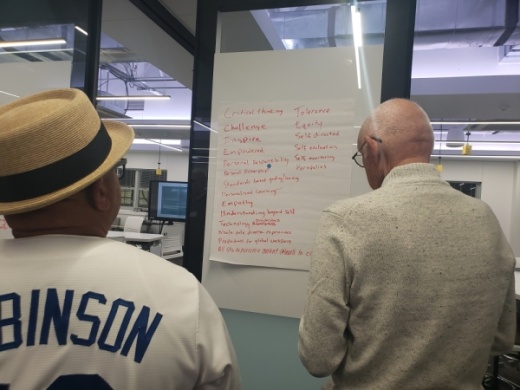The current accountability system gives districts and schools A-F ratings based on three domains—Student Achievement, which rates how much a student can do at the end of the school year; School Progress, which rates how students perform over time and compare to similar schools; and Closing the Gaps, which rates how well different groups of students are performing, according to the Texas Education Agency website.
In its 2019 ratings, GISD received an overall B, while four individual schools received an F rating, two received a D and no school received an A.
“One of the things that we face and challenges of accountability is there's so much more about our students that demand them to be successful, skills they need that a system doesn't measure,” GISD Superintendent Fred Brent said. “That's why we believe there's more.”
District officials have frequently stated that the current system does not portray an accurate representation of student personal growth. For example, the board of trustees has prioritized student social-emotional learning, which does not appear on a standardized test. The district also offers all juniors the opportunity to take the SAT for free. If students received a certain score, they can opt out of the STAAR exam, which in turn affects the districts overall STAAR scores with its brightest students not taking the state standardized test.
The number of students who test out of the STAAR exam is not currently taken into consideration for the state accountability ratings, district officials have said.
This led GISD to create a true accountability system that expands on the current system and holds the district accountable to the local community and its idea of success of its students, more so than state outcomes. Serious discussion on the formation and implementation of the true accountability system began in 2017, said Wes Vanicek, GISD's chief strategist for feedback and assessment.
About 60 districts across the state have joined this system, but each district will have its own goals customized to community desires, he added.
“The concept is not how will you compare to your neighbors, [but] how well you compare to what you aspire to become,” Vanicek said.
In the first of two public input sessions, community members listed and prioritized all of the attributes and skills they want their students to have when they graduate, including empathy and acceptance of differences, personal responsibility, ability to differentiate accurate and fake sources, and students recognizing their own skills and how they can contribute and collaborate effectively.
The district will take a prioritized list, refine it and determine ways to monitor growth, Vanicek said. The district will then ask for final approval from community members before it is implemented, he added.
Vanicek said the true accountability system will offer quarterly and annual reports on progress and adjust accordingly.
“This is about Georgetown education—your schools, your kids, your money,” Vanicek said. “This about your hope what students become.”
A second session will be held March 2 at 6 p.m. at the Hammerlun Center for Leadership and Learning, 507 E. University Ave., Georgetown.








